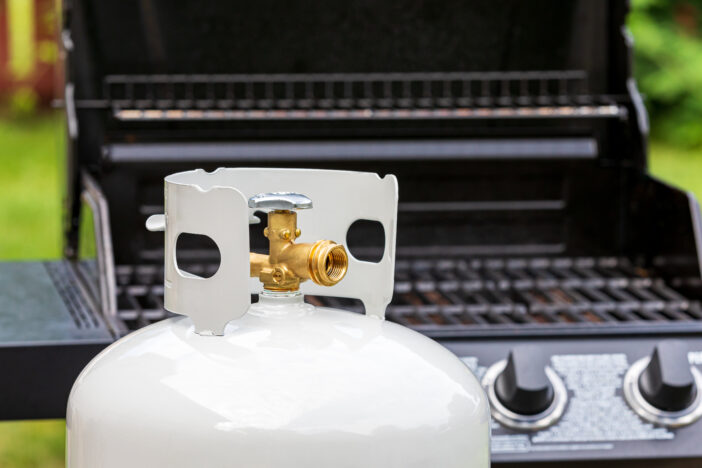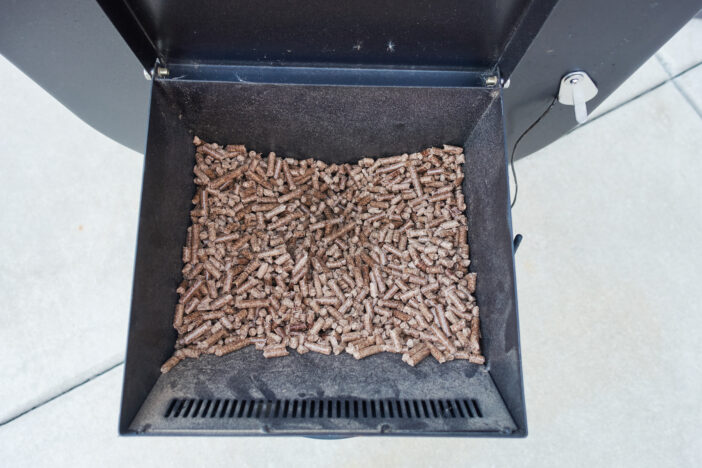5 Healthiest Grills to Boost Your Diet and Avoid Harmful Compounds
Grilling choice impacts health. Charcoal grills offer smoky flavor but may pose health risks. Gas grills reduce carcinogens and offer convenience. Electric grills eliminate carcinogens and are easy to use indoors. Pellet grills provide natural flavors with low health risks. Consider lifestyle and preferences when selecting the healthiest grill type.

Grilling season’s upon us, and choosing the healthiest grill can make a big difference in your diet. Let’s dive into the pros and cons of various grill types to help you make the best choice for your health.
Disclosure: As an Amazon Associate, this site earns from qualifying purchases. Thank you!
Evaluating Charcoal Grills

Considering charcoal grills for your cookouts? Let’s break down their health impacts and weigh the pros and cons.
Health Impacts of Charcoal Grilling
Charcoal grilling’s high-heat cooking can create carcinogens. As fats drip onto the coals and create smoke, harmful compounds like polycyclic aromatic hydrocarbons (PAHs) form and get absorbed by your food. Minimize risk by choosing lean meats, trimming excess fat, and using marinades that can reduce toxin formation by up to 99% (source: American Institute for Cancer Research).
- Flavor Enhancement: Charcoal enhances the smoky flavor of foods.
- High Heat Options: Achieves higher cooking temperatures compared to gas grills, great for searing.
- Cost-Effective: Generally less expensive upfront.
However,
- Health Risks: Potentially increases exposure to carcinogens and PAHs.
- Inconvenience: Time-consuming to light and maintain at a steady temperature.
- Environmental Impact: Produces more CO2 and particulates than other grill types.
Adapt your grilling to enjoy the flavors without compromising health.
Assessing Gas Grills

Gas grills are a popular choice among health-conscious grillers. Let’s dive into why they may be the best option for you.
Health Benefits of Gas Grilling
- Reduced Carcinogens: Gas grills produce fewer carcinogens like PAHs and HCAs compared to charcoal grills. This reduction means you can enjoy your grilled meals without worrying about harmful compounds.
- Precise Temperature Control: Temperature control is easier with gas grills, allowing for consistent cooking and less charred food, reducing the risk of carcinogen formation.
- Less Smoke: You’ll experience less smoke with gas grilling, leading to healthier lungs and a cleaner cooking environment.
Convenience
- Convenience and Speed: Gas grills ignite quickly and heat up faster than charcoal grills. This saves you time and effort, especially for weeknight dinners.
- Temperature Adjustment: Regulate the heat mid-cook easily. Adjusting the temperature lets you switch between high and low heat without hassle.
- Cost: While they have a higher upfront cost, gas grills are economical in the long run due to the lower price of propane compared to buying bags of charcoal.
- Flavor Trade-offs: You might miss out on the smoky flavor that charcoal grills provide. However, using wood chips can mimic that taste.
Exploring Electric Grills

Electric grills are gaining popularity among health-conscious individuals. They’re known for their cleaner, indoor-friendly grilling experience.
How Electric Grills Promote Healthier Cooking
- Eliminate Carcinogens: Unlike charcoal or gas grills, electric grills don’t produce PAHs or HCAs, reducing cancer risk.
- Control Temperature: Offer precise temperature control, helping you avoid overcooking and burning, which can produce harmful substances.
- Minimal Smoke: Generate less smoke, lowering the chances of inhaling toxins.
- Fat Reduction: Often comes with non-stick surfaces and drip trays, which help in reducing the fat content in food by allowing grease to drain away.
Convenience
- User-Friendly: Easy to operate, requiring just a power outlet, making them perfect for indoor use.
- Convenience: Heat up quickly and provide consistent cooking temperatures. Ideal for apartments or locations where open flames are prohibited.
- Size: Generally more compact, making them suitable for small spaces.
- Flavor Deficit: Lack of the smoky flavor imparted by charcoal or gas grills, which might be a downside for traditional grill enthusiasts.
- Power Dependency: Require electricity to operate, which might be a limitation during outdoor activities or power outages.
Electric grills offer healthy, convenient options for indoor grilling while balancing some limitations like flavor and power dependence.
Analyzing Pellet Grills

Pellet grills have gained popularity for their combination of convenience and flavor. Let’s dive into their health considerations and their pros and cons.
Health Considerations
- Reduced Carcinogens: Pellet grills use wood pellets which produce fewer carcinogens than charcoal.
- Even Cooking: They maintain a consistent temperature, ensuring even cooking and reducing harmful hotspots.
- Natural Flavor: Wood pellets impart a natural, smoky flavor without the need for additional unhealthy additives.
Pros
- Versatility: Can grill, smoke, bake, and roast with one device.
- Temperature Control: Digital controls allow precise temperature settings.
- Ease of Use: Automated features make them user-friendly.
- Fuel Efficiency: Pellets are efficient and environmentally friendly.
Cons
- Electric Dependence: Require electricity, limiting use during power outages.
- Higher Cost: Generally more expensive than charcoal or gas grills.
- Availability of Pellets: Must purchase specific pellets, which aren’t as readily available as charcoal or propane.
Comparing Grill Types for Health Benefits
Grilling can be a delicious way to prepare food, but the type of grill you use can impact the healthiness of your meals.
Factors Affecting Healthiness in Grills
- Smoke Production: Excessive smoke can contain carcinogens. Choose grills that minimize smoke, like electric or gas models.
- Temperature Control: Precise control prevents overcooking and burning, reducing harmful compounds. Pellet grills offer excellent control.
- Fuel Type: Different fuels produce different levels of toxins. Electric and gas grills are cleaner compared to charcoal.
Grill Types
- Charcoal Grills: High smoke production and uneven heating can create more carcinogens. Use sparingly if you prioritize health.
- Gas Grills: Cleaner burns with less smoke. Better temperature control decreases the risk of harmful compounds.
- Electric Grills: Minimal smoke production and consistent temperatures. Ideal for indoor grilling with health in focus.
- Pellet Grills: Low carcinogen levels and even cooking. Offers natural flavors and versatility with reduced health risks.
Recommendations for Choosing the Healthiest Grill Type

When picking the healthiest grill, consider your lifestyle and cooking preferences.
Tips for Selecting Grills Based on Lifestyle
- Busy Schedule: Choose a gas or electric grill. Quick to start, easy to clean.
- Apartment Living: Opt for an electric grill. Safe for indoor use, minimal smoke.
- Outdoor Enthusiast: Go for a pellet grill. Combines natural flavors with low carcinogen levels.
- Budget-conscious: Pick a charcoal grill. Affordable but watch for high smoke production.
- Lean Meat Lover: Use a gas grill. Offers precise temperature control, and reduces fat drippings.
- Vegetarian/Vegan: Try a pellet or electric grill. Consistent heat enhances natural flavors.
- Smoke Flavor Fan: Opt for a pellet grill. Even cooking, rich in natural smoke profiles.
- Minimal Carcinogens: Stick to electric grills. Least smoke production, healthier grilling.
Frequently Asked Questions
What are the health impacts of different grill types?
Charcoal grills produce more smoke, which can contain harmful compounds. Gas and electric grills offer cleaner, more controlled cooking, with electric grills producing minimal smoke. Pellet grills are praised for low carcinogen levels and even cooking.
Which grill type is best for indoor grilling?
Electric grills are the best option for indoor grilling. They produce minimal smoke and maintain consistent temperatures, making them suitable for indoor environments where ventilation might be limited.
Are pellet grills healthier than charcoal grills?
Yes, pellet grills are generally considered healthier than charcoal grills. They produce fewer carcinogens, cook food more evenly, and impart natural flavors using wood pellets.
What should busy individuals consider when choosing a grill?
Busy individuals should consider gas or electric grills. These grills offer quick preheat times, better temperature control, and easier cleanup, making them convenient for those with tight schedules.
Can I use a grill in an apartment?
Electric grills are the best choice for apartment living since they produce minimal smoke and are typically allowed by most apartment policies. They are versatile and can be used indoors safely.
What is the healthiest grill option for someone on a budget?
Charcoal grills are generally the most budget-friendly option. While they produce more smoke, choosing natural lump charcoal can help reduce harmful compounds compared to cheaper, processed briquettes.
Which grill type is ideal for outdoor enthusiasts?
Pellet grills are ideal for outdoor enthusiasts. They offer versatility, even cooking, and natural smoke flavors, making them perfect for outdoor settings and varied cooking styles.
What kind of grill is best for cooking lean meats?
Gas grills are recommended for cooking lean meats. They offer precise temperature control, which is crucial for evenly cooking lean cuts without drying them out.
What is the best grill option for vegetarians or vegans?
Pellet or electric grills are suitable for vegetarians or vegans. They offer consistent cooking without the risk of meat contamination and allow for grilling a variety of vegetables and plant-based options effectively.
What grill should I choose if I want minimal carcinogen levels?
Electric grills are the best choice if you want minimal carcinogen levels. They produce less smoke and maintain stable cooking temperatures, reducing the formation of harmful compounds.






